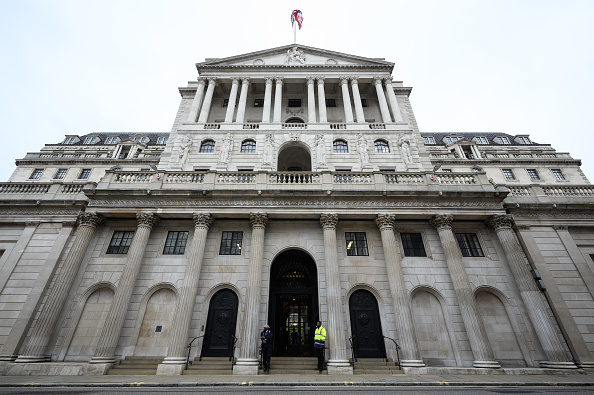Bank of England defies expectations and hikes rates for first time in three years

The Bank of England today defied the City’s expectations and hiked interest rates for the first time in three years.
The Bank’s rate setting committee voted 8-1 in favour, including governor Andrew Bailey, of lifting rates 15 basis points from a record low 0.1 per cent to 0.25 per cent, making it the first major central bank to lift borrowing costs since the onset of the Covid-19 crisis.
The Bank said there was now “a strong case for tightening monetary policy now, given the strength of current underlying inflationary pressures and in order to maintain price stability in the medium term”.
The move comes despite a lack of information on the full extent of the potential economic shock Omicron could trigger, underlining how concerned the Bank is about skyrocketing inflation.
Uncertainty over the potential blow the Omicron variant of coronavirus could deal the UK economy had prompted analysts to dial back bets on a rate hike.
Governor Andrew Bailey said: “We’re seeing more persistent inflation pressures… so that’s why we have to act.”
“We’re concerned about inflation in the medium term,” he added.
Inflation has soared to over double the Bank’s target, hitting 5.1 per cent, the highest level in over 10 years and up from 4.2 per cent, according to the Office for National Statistics (ONS).
Markets responded sharply to the news and are now pricing in three more rate hikes by the end of next year.
The pound rallied, strengthening 0.63 per cent against the dollar to buy $1.3352.
Hiking rates was driven by the Bank feeling hot under the collar over skyrocketing inflation. Threadneedle Street now expects the cost of living to hit six per cent next spring, around one percentage point higher than previously forecast, driven by soaring wholesale gas prices swelling households’ energy bills.
Experts said the Bank’s agitation toward the over decade high inflation print coaxed it into the surprise move.
The decision to hike “before [the Bank] knows the full extent of the economic damage wrought by the surging Omicron variant, underlines how worried it is about the outlook for inflation and the risk that inflation expectations would de-anchor if it did nothing,” said Samuel Tombs, chief UK economist at Pantheon Macroeconomics.
A string of recent data illustrating the UK jobs market is exceedingly tight, but is holding up well after the end of the furlough scheme, meant the Bank’s threshold for raising rates had been met.
For the first time, the Bank conceded that inflation may be stickier than it first expected. There are “signs of greater persistence in domestic cost and price pressures,” it said.
Silvana Tenreyro was the only member of the monetary policy committee to vote against a hike. All members voted in favour of seeing through the QE programme.
More to follow.